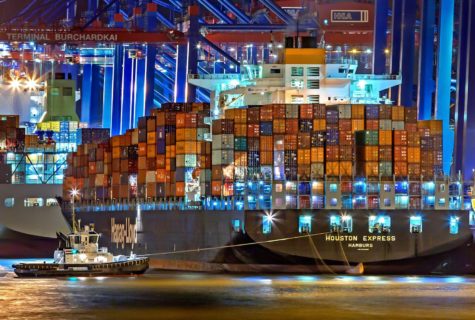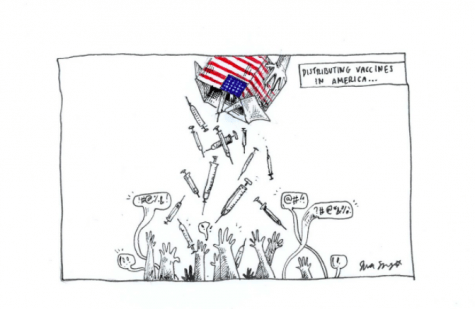The Future of Globalization in a Post-Coronavirus World
As the coronavirus shows nations that international trade might not be beneficial, faith in globalization dwindles. (Photo/NASA/Unsplash)
May 5, 2020
Globalization—a term used to describe the interconnectedness of the world—has been on the rise, up until this moment. The creation of the internet has allowed people all over the world to communicate more easily, and travel costs have been gradually falling, making it very easy and inexpensive for people to travel and work in different locations. Various trade agreements and associations such as NAFTA and the WTO helped American companies to outsource labor to other countries, converting their domestic supply chain management into a global phenomenon.
In spite of such growth, globalization might fall victim to COVID-19. In fact, globalization has been slowly declining for the last few years. Various countries have recently engaged in tariff wars, reducing global trade relations. To make matters worse, COVID-19 has thrown the world into disarray, providing the U.S. with an excuse to close down borders and impose travel restrictions.
The crisis has caused a shortage of medical supplies and personal protective equipment worldwide. 3M, an American multinational company, has manufacturing plants in different parts of the world and is a large producer of N95 masks: masks that are used by healthcare workers in order to protect the wearer from 95% of all airborne particles that are larger than 0.3 microns. These masks are currently in dire need as doctors and medical professionals must be able to protect themselves when treating a patient with COVID-19.
During the earlier days of the coronavirus outbreak, China placed an export ban on much needed medical supplies, including 3M masks made in China, resulting in a shortage of N95 masks in the U.S. This crisis has made countries such as the U.S. rethink the global manufacturing spread of their own corporations, especially those that produce critical supplies. As a result it is very likely that the global community will try to implement harsher production guidelines on manufacturing companies.
Another instance of a COVID-19 related trade tension occurred when India banned the export of much needed pharmaceuticals on April 4. Only after the U.S. threatened India with retaliation did India announce that they would partially ease the restrictions of the export ban. Since the 1990’s, American companies have increasingly relied on imports of pharmaceuticals from India; however, due to the ban, countries such as the U.S. are concerned about their supply once again. This potential conflict only furthers the divide between nations, as it becomes clear that many will need to set up medicine manufacturing plants domestically.
On April 21, President Donald Trump announced a ban on certain types of immigration. Although it may not help with the pandemic, the White House has used the coronavirus as a justification for “protecting” Americans from losing jobs to people immigrating to the US.
Globalization is likely to decline in the foreseeable future as countries grow more concerned about their supply chain, especially for essential equipment, and grow wary of health threats originating in far off places. According to Ian Goldin, a professor of globalization at Oxford University, “globalization as it has been managed in recent decades—[is] an under-regulated, complacent form of interconnection that has left communities vulnerable to a potent array of threats.” Though Goldin’s analysis has yet to be confirmed, it appears to many that, since the coronavirus hit, globalization has been a source of struggle for various countries.

















